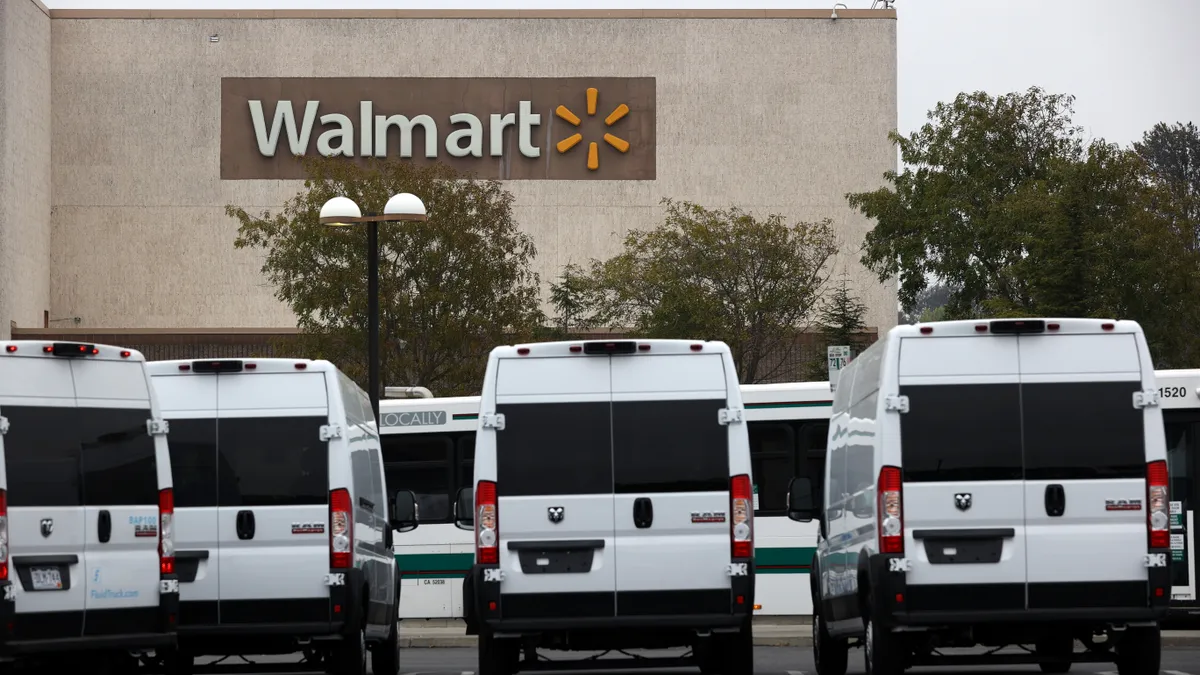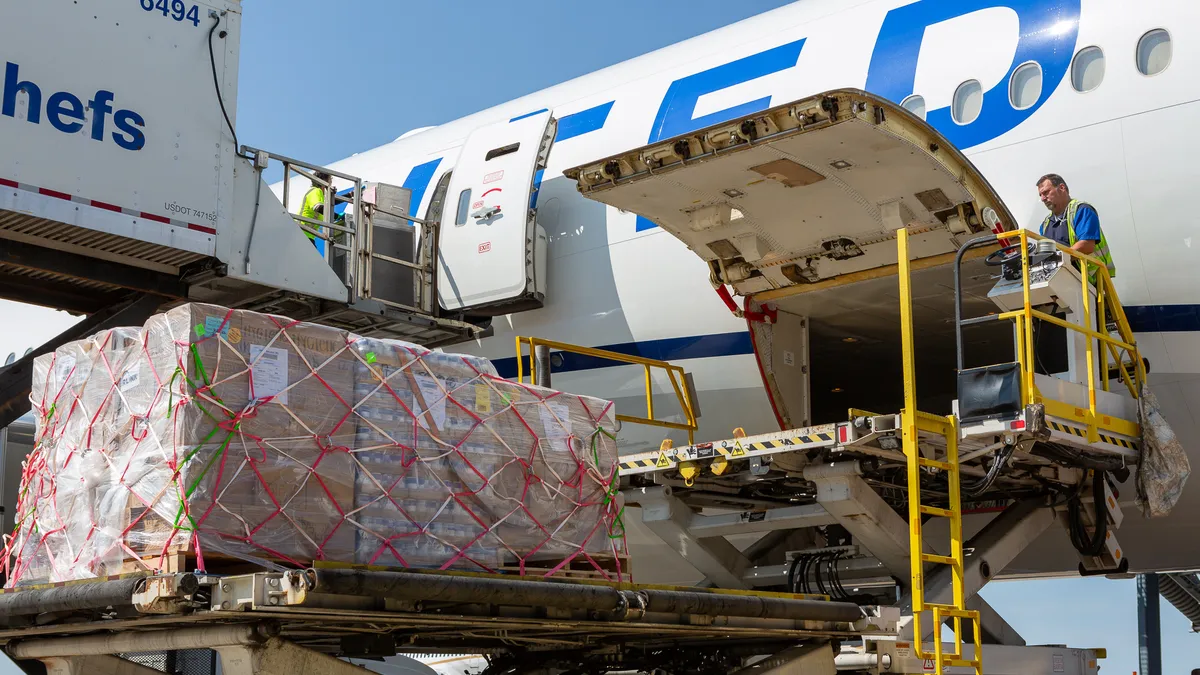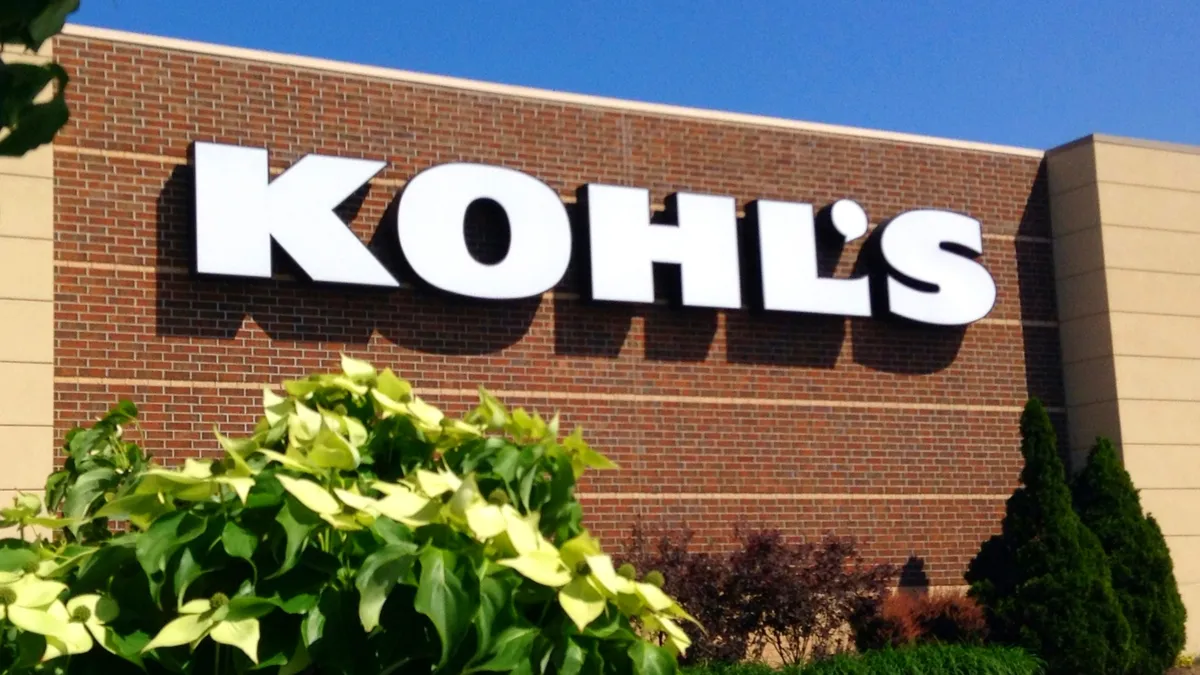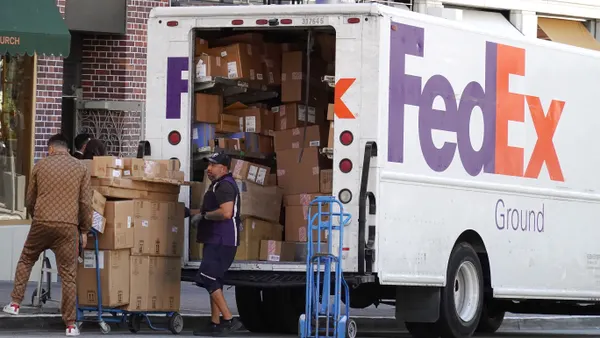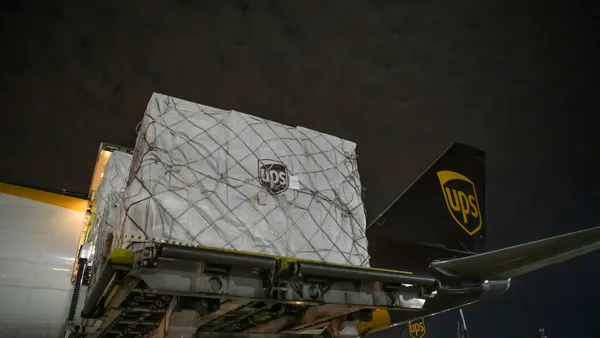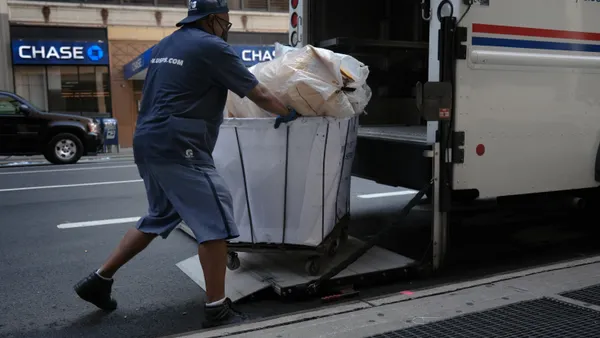Walmart is a fresh face in the crowded delivery-as-a-service space, but the retail giant is looking to make its mark with a precise white-label delivery focus and by expanding fulfillment options to categories beyond food.
Since being announced in August, Walmart GoLocal has invited comparisons to companies like DoorDash and Instacart thanks to its same-day delivery focus. Yet there is a key difference between GoLocal and other providers: GoLocal doesn't have its own customer-facing platform. Instead, its focus is to deliver orders made on its clients' websites and apps.
"That's a big differentiator, to be respectful of not disintermediating business-to-consumer relationships," Harsit Patel, general manager of Walmart GoLocal, told Supply Chain Dive.
Walmart is rolling out its white-label delivery service at an opportune time. Demand for fast delivery boomed at the onset of the COVID-19 pandemic, as shoppers stayed at home and called for couriers to shop for their essentials instead.
In 2021, the U.S. quick-commerce market will total between $20 billion and $25 billion in retail sales, according to a Coresight Research report published in November. That's a 10% to 13% share of its estimate for online CPG sales in the U.S.
"All indications tell us that what used to be a luxury, same-day delivery, is not just even a convenience anymore," Shipt Chief Business Officer Rina Hurst said. "It's become a must-have service."
Rapid delivery expands beyond food
Same-day delivery has traditionally been a space for groceries, restaurant orders and everyday essentials ordered through customer-facing platforms. But providers are looking to deliver a wider array of products outside of these verticals, bringing more revenue and increased last-mile efficiency with them.
Still in its early days, GoLocal isn't limiting itself to specific verticals. Walmart announced The Home Depot as the service's first retail client in October, and Chico's became its first fashion client in December. GoLocal is also pursuing deals with local firms.
"There's a lot of smaller businesses that have been left out largely outside of the restaurant verticals," Patel said. "We're going to extend these services to any size of local business and then work with them to help them strengthen their relationships with their customers and primarily working as the white-label delivery provider for them."
Retailers using GoLocal notify the service when an order made through its app or website is ready to be delivered, along with the timeframe and any additional parameters. GoLocal offers delivery times as fast as 15 minutes, Patel said. The service also can provide next-day delivery, but it's not a fit for every business. According to Patel, most clients would want to fulfill next-day and two-day deliveries from a warehouse rather than local stores.
Walmart is making its push into white-label delivery as other companies begin ramping up services outside the marketplace format.
DoorDash has Drive, its white-label logistics service. In the grocery sphere, Instacart Connect allows retailers to run their own front-end storefronts while Instacart handles pickup and delivery. Shipt is also diving into delivery-only operations with Shipt Driven, which works off a retailer's own website. Hurst said the last-mile service is an effective way for the company to reach more customers through new verticals.
"This is the fastest growing part of our business," Hurst said of Shipt Driven. "Because this is on a retailer site, we can reach customers through so many different verticals, and our primary play is actually outside of grocery."
Rapid delivery providers set to grow sales as their services diversify
Shipt Driven supports brands like Party City, Best Buy and Abercrombie & Fitch, Hurst said. Fellow delivery providers are also expanding into non-food verticals. Instacart has partnered with Big Lots and H&M Canada for deliveries. And Uber Eats is expanding the scope of what it delivers more each day, said Christian Freese, a senior director and GM for new verticals and delivery in the U.S. and Canada, in an email.
"For example, we recently launched a new Kids + Baby vertical with buybuy Baby, Bed, Bath, and Beyond and Walgreens, to help parents and caregivers get what they need for their families—fast," Freese said. "We'll continue looking for new opportunities like this based on consumer feedback and merchant interest."
What's next for GoLocal
For GoLocal to be an effective — and profitable — white-label delivery service, it will need to fulfill more orders on more routes. Patel said GoLocal's goal is to grow volume and delivery route density, but declined to share specific numbers on the amount of deliveries it has made so far or how many it projects to make in 2022.
The service's coverage will proliferate "pretty much around Walmart locations," Patel said. Walmart has more than 5,300 retail units in the U.S., which includes Sam's Club stores. Many of its locations are in rural and suburban markets. John Mercer, head of global research at Coresight Research, said this footprint is a big selling point for GoLocal's service, with plenty of potential customers within 15 to 30 minutes from a Walmart location.
Walmart's retail footprint covers the entire U.S.
As GoLocal expands, the size and scale of Walmart's logistics capabilities mean the company sees opportunity in offering services further up in companies' supply chains, Patel said — the last mile may just be the start.
"Without going into too much detail, some of the last-mile services that we're offering to our partners you could traverse up in the supply chain," Patel said. "...This is going to be the nucleus that allows us to build on that long-term vision."
Editor's note: This story was first published in our Logistics Weekly newsletter. Sign up here.



